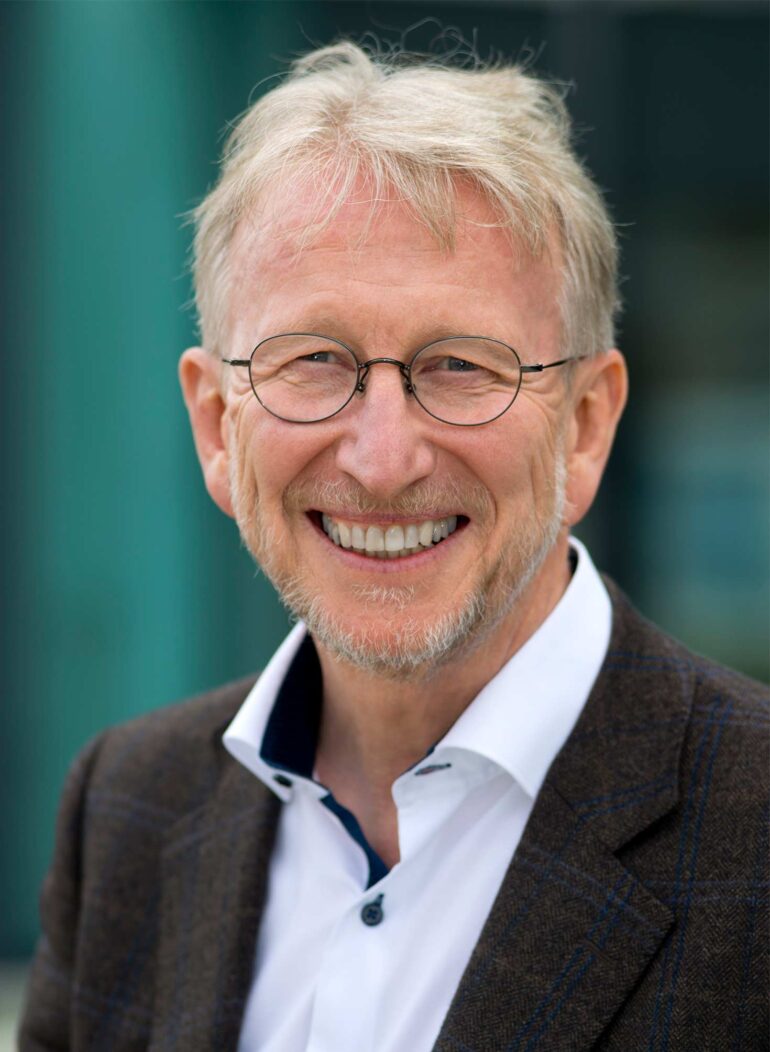The Hasler Foundation is steeped in tradition, but this year it launched a programme to explore the question of responsible artificial intelligence. In 2020, a year hard-hit by Covid, it offered one-off funding to purchase 1,381 devices that helped schoolchildren to continue their lessons from home.
Artificial intelligence (AI) is playing an ever more important role in our lives – but we do not always notice it. ‘If we pass more and more decisions and work to computers, we want these tasks to be dealt with in line with our ethical expectations and values,’ says Matthias Kaiserswerth, managing director of the Hasler Foundation. ‘We want to be able to justify them.’ At the moment, many of the AI algorithms currently available do not yet meet these conditions. ‘And they should not be used in that form,’ says Kaiserswerth, making his stance clear. This is one reason why the Hasler Foundation is supporting research into AI, and why it has launched the new ‘Responsible AI’ project. IT researchers at Swiss universities were able to apply to the project: 83 short applications had been received by the deadline. Overall, the foundation will support 10 to 12 of them, estimates Kaiserswerth. ‘We want to use Responsible AI to support research that focuses on how we can get AI algorithms to make decisions fairly and in line with our codes of ethics.’ The new programme runs alongside the ongoing funding programme, start-up financing and the award of scholarships.
From a corporate foundation to a funding foundation
The Hasler Foundation was founded in 1948 as the Stiftung Hasler-Werke. Its founder, Gustav Hasler, took over his father’s company in 1900, aged 22. The factory made telephones and Hasler went on to expand it into an international telecoms firm. He had no children, so he left a large part of his assets, including the factories, to the foundation. ‘The goal was to use the dividends to support research and education relating to telephony and telegraphy within Switzerland,’ explains Kaiserswerth. The foundation was intended to play a role in further building up the relevant expertise within Switzerland, while also ensuring the continued operation of the Hasler works and benefits for employee. After the merger to form Ascom in the 1990s, the foundation sold its holdings in the company. In 2004, it amended its deed of foundation, turning the corporate foundation into a funding foundation. Kaiserswerth adds: ‘And the name also changed to the Hasler Foundation – as it was already popularly known.’

«We want to be able to justify decisions.»
Matthias Kaiserswerth
Research and education
In 2009, the foundation changed its purpose to align with the lived reality. ‘Since then, the Hasler Foundation has not only supported educational projects in telecommunications technology, but also those in information technology, which is becoming ever more important,’ says the managing director. Since then, the foundation’s purpose has been to advance information and communication technology (ICT) for the benefit of Switzerland as a place to think and work. ‘We think the foundation’s purpose is a highly accurate description of the lived reality and in terms that are general enough to ensure that it will retain its validity and relevance in the years to come,’ says Kaiserswerth. The foundation’s purpose of both research and education gives potential synergies between the two. The Hasler Foundation funds endowed professorships in computer science education at teacher training universities in Switzerland. ‘These professorships teach prospective IT teachers and they also carry out research to see how IT lessons can be didactically structured to ensure they make the maximum impact,’ says Kaiserswerth.
Procurement of end devices
The importance of digitalisation in schools has become evident over the past few months. Kaiserswerth saw that many children were not able to take part in distance learning when their schools closed during lockdown. ‘Their schools were not able to give them devices and they did not have anything to use at home, or perhaps there was just one device for the whole family,’ he says. That’s why in April 2020 the Hasler Foundation launched a special programme to provide devices in order that children were able to continue their lessons from home. It put forward CHF 800,000, enabling 1,381 devices to be funded for secondary school pupils.


